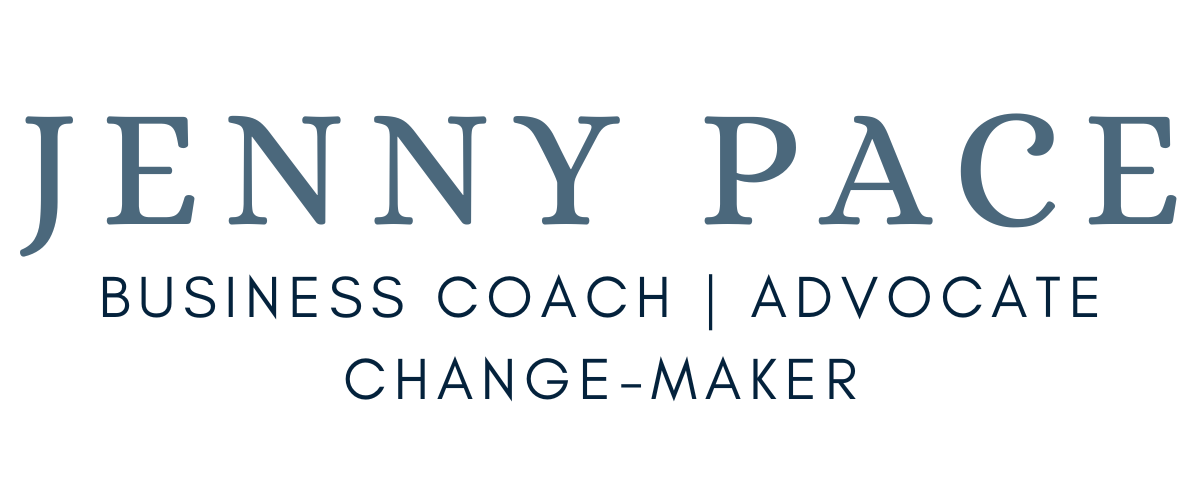As humans, we regularly need to let go of stuff in order to move forward with efficiency, energy and clarity. Today, I’m sharing my top four things I’d love for business owners to release on the regular.
It’s a bit like Marie Kondo-ing your brain so that you have more space for excellent business strategy and clarity.
Are you ready to let go? Here we go:
1. Perfectionism
I’ve said it before and I’ll say it again: perfection is an illusion, and, if you’re a business owner, it can be a costly thing to focus on.
No project is ever perfect. No plan is ever perfectly executed. So stop beating yourself up about it, and please, please focus on all the good stuff you are doing.
The progress you make is worth far more than perfection, which is worth absolutely zero.
If you, like so many of us, try really hard to make everything perfect, consider:
- Identifying what “good enough” looks like
- Focusing on one or two things that REALLY matter to you
- Reading about iterative processes and how valuable they are in business. The Lean Startup is a great book to get you going.
- Launching something before you think it’s ready, and rolling with it
- Joining my anti-perfectionism group coaching course, Progress not Perfection
2. Expectations
Okay, I definitely believe in forming an authentic, aligned vision for your business. So let’s make sure we know that I’m not saying you should let go of that.
Expectations are different. Expectations are often fantasies of how we hope things will go, without much basis in reality. And, crucially, expectations are usually things we put onto other people.
Brene Brown says, “Expectations are resentments waiting to happen.” And I think we could do without resentment, yes?
Here are some examples of expectations to let go of:
- The expectation that you will consistently do more than is reasonable in a given day, eg the work of 20 hours in 8
- The expectation that other people will automatically have the same passion and drive that you do
- The expectation that other people are as hard-working as you, or will do things in the same way
- The expectation that other people will be able to read your mind (they really, really can’t)
- The expectation that your business will consistently out-perform what’s statistically possible
How to let go of expectations? Notice them. Write them down. Perhaps on a daily basis. These things are easy to think without thinking about it, and then will trip you up later!
3. Disappointments
Oh, the disappointments. If you’ve been in business more than a year (and/or alive more than 25 years), you’ve probably experienced some pretty hefty disappointment.
Maybe you’ve been let down by someone. Maybe a project didn’t come to life the way you’d hoped. Maybe the decisions you made in good faith turned out to be wrong in ways you couldn’t see at the time.
Feeling let down sucks. And it can be a huge drain on your energy, often leading to a mindset where you can’t imagine trying or trusting anything (or anyone) ever again.
If you’ve been disappointed, here are some suggestions:
- Feel it. Be angry. Write down everything you feel and would like to say to all involved.
- Release it. Shout into the sky. Burn everything you wrote. Or rip it up and throw it away.
- Forgive yourself. This is a big one. Actively tell yourself that you forgive anything you’ve been beating yourself up for.
- Learn. What are the lessons of your disappointments? What did you learn about what to do next time, or who to trust?
- Put lessons into actions. The best way to let it go is to move on, and that takes action. End or repair relationships. Change the direction of projects. Start new projects based on your learnings.
4. Comparison
If I could make a wish for all business owners everywhere – no, wait, all people everywhere – it would be to let go of comparison.
It truly is the thief of joy, and it can corrode confidence, passion and enthusiasm quicker than you can blink.
And comparing yourself to others is so. easy. to. do.
Especially on social media, where everything can seem shiny and easy and perfect (see above). In reality, everyone is facing challenges and messiness and disappointments.
You can waste so much time and energy on stalking competitors, or even comparing yourself to friends who seem to have it all together. You know what I’d love? I’d love for you to put all that delicious time and energy into YOUR business, your designs and creations and unique gifts.
So let go of it as much as you can:
- Unfollow people who make you slip into comparison
- Write down all the things you think “people” are doing / achieving and acknowledge that you have no idea what their behind the scenes really looks like
- List your own gifts, talents and skills – regularly
What else would you love to let go of? Or perhaps you’d like a witness to the perfectionism, expectations, disappointments and comparison you’re releasing now. My emails are open.
PS Fancy getting these blogs by email? You can subscribe here.


